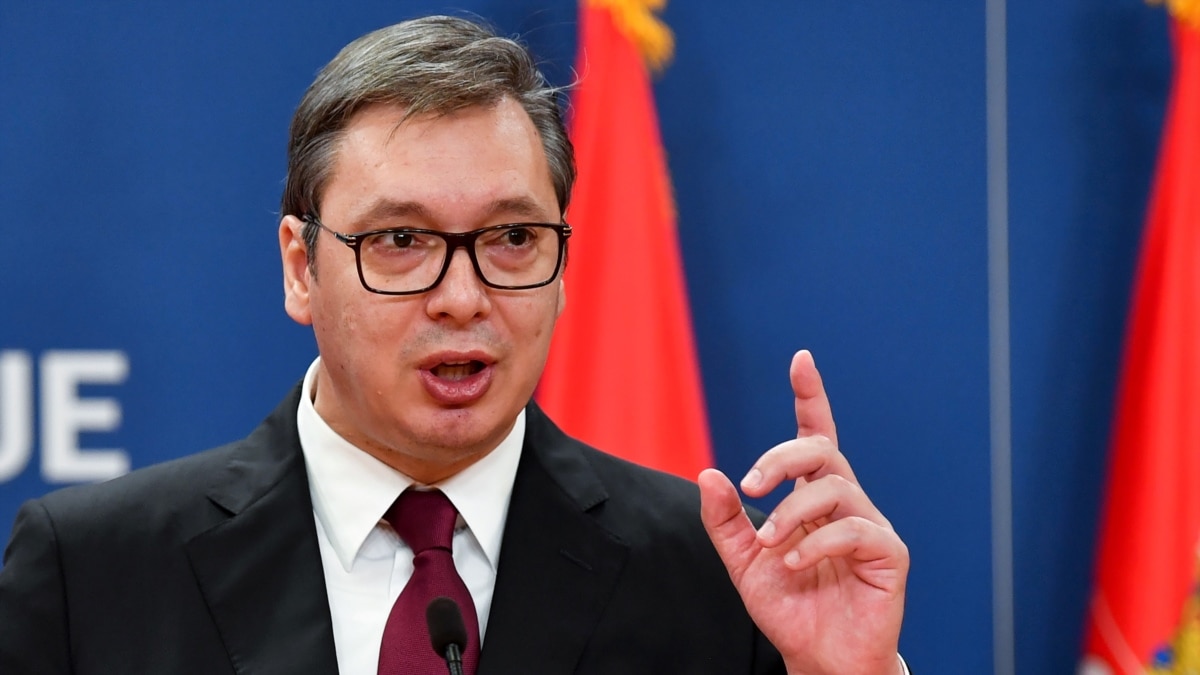A Move to Consolidate Power
In a surprising political development, Serbia’s president, Aleksandar Vučić, has dissolved the parliament and called for early parliamentary and municipal elections scheduled for 17th December. This move comes less than two years after his Serbian Progressive Party (SNS) won the last ballot, raising questions and concerns both domestically and internationally. In this article, we'll explore the reasons behind this decision, its implications, and what it means for Serbia's future.
The Rationale Behind the Decision
“We live in times that are difficult for the whole world, in times of global challenges, wars, and conflicts when it is necessary that we are all united in preserving vital national and state interests of Republic of Serbia,” Vučić said on Wednesday. This statement from the Serbian president underlines the tumultuous global climate and the need for Serbia to remain united in the face of these challenges.
One major factor influencing this decision is the ongoing issue of normalizing relations with Kosovo, which Serbia still regards as its southern province. Vučić seeks to buy time and solidify his authority as he navigates the complex path towards achieving this normalization. It's a pressing concern that has been on the international agenda for some time, with the European Commission calling for increased efforts to resolve this matter, particularly after recent violence in the region.
Domestic Pressure and Opposition
The decision to dissolve parliament and call for elections was not without controversy. Several Serbian opposition parties officially requested the vote in September following mass protests triggered by back-to-back shootings in May, which resulted in the tragic deaths of 18 people, including children. Protest organizers accused the ruling party and government-friendly media outlets of fostering a culture of violence, intensifying public discontent.
International Expectations
The international community, particularly the European Union, has its eyes on Serbia. The EU has outlined a set of expectations for Serbia, which include supporting western sanctions against Russia over its invasion of Ukraine, addressing corruption and organized crime, reforming the economy, improving the judiciary, enhancing the business climate, and ensuring human rights are upheld.
The Political Landscape
In the previous elections held in April 2022, the conservative SNS, which has been in power since 2012, and its partners secured 120 out of 250 seats in parliament. Vučić, a former hardline nationalist, was re-elected as president for a second term. However, Serbia's main opposition parties boycotted the 2020 elections, claiming they were neither free nor fair. This refusal to participate contributed to a lack of political diversity in the parliament.
The President’s Agenda
Vučić's decision to call early elections is not only about addressing domestic discontent but also about consolidating his own support. Recent opposition protests have eroded the popularity of the SNS, making it necessary for the party to seek new allies to secure a majority in the upcoming elections.
Polls suggest that an SNS-led coalition may receive approximately 44% of the votes, while the centrist opposition bloc, "Against the Violence," is polling at about 38%. Additionally, ultranationalist and pro-Russian parties are emerging as potential players in the political landscape, possibly winning 11% of the votes.
Controversies and Accusations
Vučić, who stepped down as the head of the SNS in May, continues to wield significant influence within the party. Nevertheless, his leadership has faced criticism for autocracy, media control, election fraud, violence, corruption, and alleged links to organized crime. These controversies have contributed to the country's political turmoil.
International Implications
Kosovo has closely watched Serbia's political developments, as they are intrinsically linked to the normalization process. Vučić's decision to call elections might be one reason behind his refusal to agree to a US-EU solution for managing northern Kosovo. Kosovo has long suspected that Serbia's agreement on self-management of the northern municipalities would signify official recognition of Kosovo by Belgrade.
International Expectations
The EU and other international leaders have consistently called for both Serbia and Kosovo to respect the agreements they made to normalize their relations, and there is a growing emphasis on the self-management plan for Serb-majority municipalities. The international community expects progress on this front, along with a commitment to mutual recognition.
In conclusion, Serbia's president dissolving parliament and calling early elections reflects the complex political dynamics at play in the region. It's a decision shaped by both domestic and international factors, with the aim of navigating Serbia through challenging times and consolidating political power. As the election date approaches, all eyes will be on Serbia to see how this decision will reshape the country's political landscape.
FAQs
Why did Serbia's president dissolve the parliament?
Serbia's president dissolved the parliament to address domestic pressure, consolidate his power, and navigate the complex issue of normalizing relations with Kosovo.
What are the international expectations for Serbia?
The international community expects Serbia to support western sanctions against Russia, combat corruption and organized crime, reform its economy, improve its judiciary, enhance the business climate, and uphold human rights.
What were the triggers for the early elections in Serbia?
Mass protests following back-to-back shootings in May, along with opposition demands, played a significant role in calling for early elections.
What are the implications of Serbia's political developments on Kosovo?
Kosovo closely watches Serbia's political decisions, as they are linked to the normalization process. The self-management plan for Serb-majority municipalities is a key point of focus.
How has the Serbian president been criticized?
The Serbian president has faced criticism for autocracy, media control, election fraud, violence, corruption, and alleged links to organized crime.







0 Comments